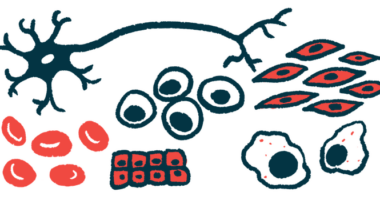1st Group Enrolled in Phase 1 Trial of DA01 for Advanced Parkinson’s

BlueRock Therapeutics’ Phase 1 trial testing DA01 — an investigational therapy to restore neuron loss — has completed enrolling its first group of patients with advanced Parkinson’s disease.
Meanwhile, enrollment for the second and final high-dose cohort of the open-label trial (NTC04802733) is still ongoing at sites in the U.S. and Canada.
DA01 is a treatment consisting of dopamine-producing nerve cells derived from human embryonic stem cells (ESCs). These ESCs are pluripotent, which means they have the ability to grow and differentiate into almost any type of cell in the body.
The therapy is designed to repopulate a patient’s brain with dopamine-producing neurons, those responsible for releasing the neurotransmitter dopamine and whose loss is a hallmark of Parkinson’s. The treatment’s goal is to restore dopamine production and potentially reverse neurodegeneration.
“By replacing lost neurons in the midbrain region of patients with Parkinson’s disease, we have the potential to regenerate lost function and possibly improve and reverse the disease,” Joachim Fruebis, PhD, chief development officer of BlueRock Therapeutics, a wholly owned subsidiary of Bayer, said in a press release.
The study’s main goal is to evaluate DA01’s safety and tolerability in Parkinson’s patients, age range of 60 to 76 (50 to 76 for those enrolled in Canada), one year after they receive a cell transplant. Secondary goals include assessing the transplanted cells’ ability to survive, testing changes in patients’ motor abilities at one and two years post-transplant, and continued assessments of safety at two years.
Patients in the first group undergo surgery under general anesthesia to transplant DA01 into their putamen, a brain region that controls movement that is heavily affected in Parkinson’s disease. Patients will also take medication to suppress their immune system for one year following the transplant, to ensure that the stem cells are not attacked by the patients’ own immune systems.
“This is an incredible step forward as we execute on our goal of bringing authentic cellular medicines to patients in desperate need of treatment,” Fruebis said.
Last summer, DA01 was granted a fast track designation by the U.S. Food and Drug Administration, a designation which aims to accelerate the therapy’s development and expedite its potential approval by providing more frequent meetings with the FDA and discussions about the development plan.







